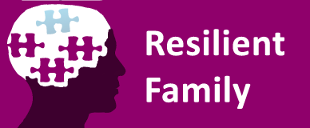Assessment Services

Assessments
Why is an assessment necessary?When you visit your doctor, he/she usually listen to your symptoms and then examine you thoroughly, before medication is prescribed. Psychologists use assessments to "examine" and investigate the problems and concerns you have described. I need to find all the puzzle pieces to see the full "picture".
In children and adolescents, a full Psycho-Educational assessment is used to obtain diagnostic and clinical information based on their intellectual-, scholastic - and emotional functioning. The aim is to look at the child or adolescent holistically and systemically. This will help us to come up with a plan of action or treatment plan to address the areas of concern.
A full Psychoeducational assessment consists of 3 components: intellectual- and scholastic assessments and an emotional screening.
An intellectual assessment reveals the strengths and weaknesses of the individual, the way they acquire and use new information i.e. learning, how they solve problems as well as their crystalised intellectual ability. It also assists in identifying and understanding learning- and concentration difficulties, as well as auditory and visual perceptual aspects of the individual.
The second part of the assessment consists of a baseline scholastic assessment to investigate the basic literacy and numeracy functioning of the person. During this assessment reading, spelling and mathematical functioning are investigated to establish possible areas of concern. Specific learning difficulties can be identified when considering all the information from the intellectual and scholastic assessments.
The final part of the assessment consists of an emotional screening as to ascertain whether there are any emotional issues that are preventing the individual of performing optimally.
Based on the assessment, I will be able to assist with the following:
- Academic / scholastic functioning
- Intellectual functioning
- Learning styles
- Remedial or special needs
- Learning difficulties, including ADD
- Study skills
- Working memory difficulties
- Emotional well-being
A standard full assessment usually takes four hours. It depends on the individual person though and some children take longer to complete the assessment procedure.

School Readiness
What a milestone in your child and your life. Your child is going to big school- start her/his school career! But to secure school success- that your child has the start that he/she deserves right from the beginning, it is important to ensure that all the building blocks are in place.
For a child to be school ready, both intellectual and emotional skills need to be in place. Emotional school readiness is as important, if not more important, than intellectual school readiness
Children may now start school if they turn six by the end of June of their Grade 1 year. By law, a child must start school by the year in which she turns seven. Emotional readiness involves having the confidence and self-esteem to cope with all kinds of situations. This is a developmental issue rather than an intellectual issue.
A child that is ready for grade one, is emotionally, socially, intellectually and physically ready to participate in the grade one classroom activities confidence and enthusiasm; enjoying being in the class.
Most pre-schools have some form of school-readiness assessments which they usually do in the year before your child goes to grade one. This is done to give them an idea of whether a child will be able to cope effectively in Grade 1. These assessments are far from perfect and aren't necessarily valid predictors of future school success. It is important to have a holistic school readiness assessment done by a Psychologist.
I do a four hour assessment where I look at various learning areas including intellectual readiness, perceptual and motor skills, planning, social and emotional skills. This will help me to derive a plan if some building blocks are not in place. I will make recommendations and referrals as necessary.
Children seem to experience success very intensely. If children experience success in grade one, they are more likely to be positive about their schoolwork. If a child battles to keep up with the demands of the grade one class {while their peers can manage} his self esteem will suffer and he/she might experience school as an unpleasant place to be at- every parent's nightmare! It is vital that a child be placed in the best possible school for his/her needs.

Career guidance and subject choices
It is such an exciting time when decisions need to be made about your child's future. But, it can also be tough and daunting to help your child choose the correct subjects for future scholastic success, or to make plans for future career choices.
I can assist and guide you through the process. During this process I will conduct comprehensive interviews with you and your child, guide your child through self exploration activities and assessments to assist you and your child to make well informed decisions.
Finding the right career path is not an incident, it is a process, it is a journey.
